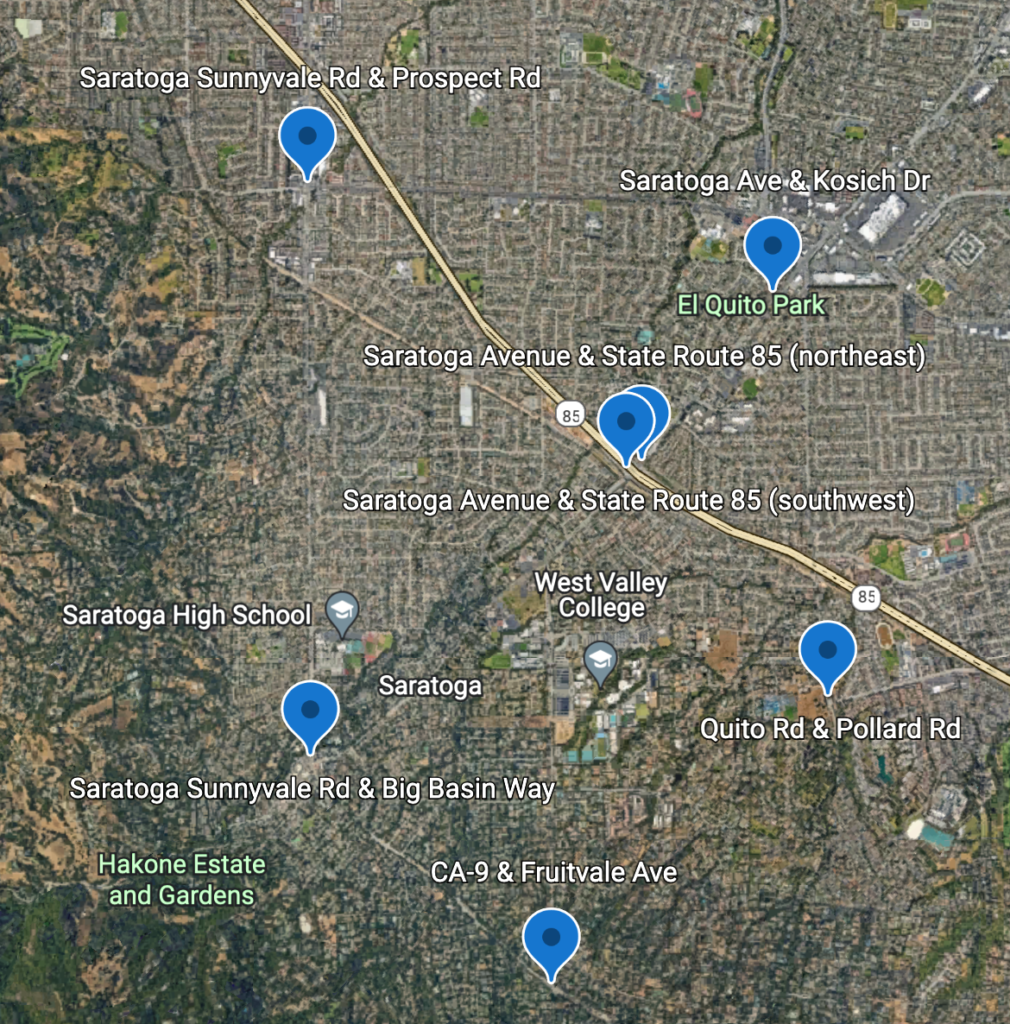As a car zooms by the Saratoga Avenue and State Route 85 intersection, a camera mounted on a traffic pole captures its direction, speed and location — all tied back to its license plate. The information is transmitted to law enforcement databases, allowing police to track the movement of the vehicle and detect if any unlawful activity takes place.
The Saratoga City Council approved a one-year Automated License Plate Recognition (ALPR) pilot program on Feb. 2, with installation completed in August. Partnered with Flock Safety, an ALPR manufacturing company, the program installed seven ALPR cameras across Saratoga for $20,000.
There are several issues with ALPR cameras. Most notably, there are privacy concerns: ALPRs track the movement of millions of cars belonging to normal civilians.
This form of mass surveillance is extremely invasive. Any law enforcement official now has access to exactly where a car has been in some areas. License plates can be tied back to a specific person through law enforcement databases as well. ALPR cameras breach citizens’ privacy in the name of supposed safety.
This problem is exemplified by the risk of data breaches on system data and exposing such information to criminals. If someone with bad intent were to get this data, they would be able to track everyone’s movements — which can have dire consequences on the safety of the people.
For example, Boston’s entire ALPR system was exposed in 2015, and hundreds of thousands of vehicle records were freely accessible by the public.
A TechCrunch report found over 150 ALPR devices connected and searchable to the internet — many with default passwords. If a similar data leak happens in a city like Saratoga, it could lead to potential stalking or other unlawful activities to take place.
In addition to this, ALPRs are expensive to maintain. For example, the currently used Flock Safety company charges $2,400 per camera a year with a $350 installation fee.
Cities such as Los Altos Hills, Los Gatos, Morgan Hill and Milpitas have also implemented these systems, draining tens of thousands of dollars from city budgets.
Proponents argue that ALPR has the ability to detect stolen vehicles or criminals coming and going. However, ALPR cameras are disastrously ineffective. A study conducted by the Independent Institute in the city of Piedmont, California, found that less than 0.3% of ALPR “hits” actually become investigative leads, according to 16 years of statistical evidence.
Furthermore, there was no correlation between ALPRs and stolen vehicle recoveries during that time.
Despite such studies, ALPRs have proliferated across the country, contributing barely anything to safety while taking away from civilians’ privacy and money. Saratoga should discontinue its recently implemented ALPR programs and spend money on more worthwhile things like social services or city infrastructure instead.


























